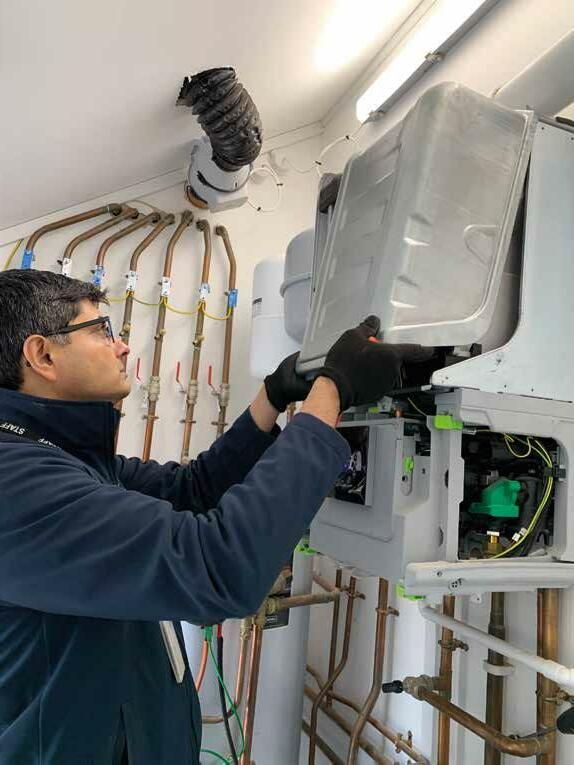Helping hands across the community
Gas Safe news
Reminder on defect notices
Boilers
New efficiency measures proposed
Technical
Preventing cold weather probems
WIN: A new and unique Boiler Lifter from Clevatech

Helping hands across the community
Gas Safe news
Reminder on defect notices
Boilers
New efficiency measures proposed
Technical
Preventing cold weather probems
WIN: A new and unique Boiler Lifter from Clevatech

£ 20K in our Bag cash giveaway!
We all need a bit of joy in our lives, now more than ever! So, pick up a promotional pack of JG Speedfit 15mm Equal Elbows to enter our 20 Grand Giveaway – plus more monthly prizes to be won. What would you spend it on? speedfit-giveaway.co.uk
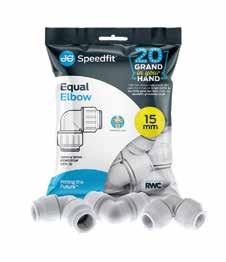
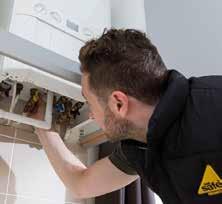


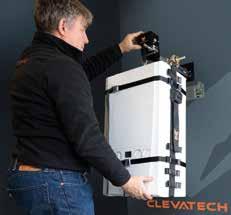

When times are hard, it’s heart-warming to know that people will be there to help. Many of those working in the heating industry have been a beacon of hope as the cost-of-living crisis bites, coming together to support those in need across the country.
We’ve been speaking to some of these organisations, including DEPHER, the charity set up in 2017 by James Anderson in Lancashire to help older people and those with disabilities with boiler repairs. Such has been the need for DEPHER’s help that it now has 12 members of staff, providing a broader spectrum of support than ever and it plans to have gas engineer in every part of the UK.
Warriors of Warmth not only provides help for charities in need but uses every installation as a potential teaching opportunity for younger gas engineers and apprentices, helping to encourage the next generation through practical experience.
And as well as carrying out practical work for those in need, Band of Builders supports tradespeople by improving awareness of mental health issues, enouraging them to get together and chat over a cuppa, and providing a mental health support text service.
You can read more about these amazing organisations on page 22, and find out how what practical financial support is available for your customers if they’re struggling to afford their heating bills
Nicki Shearer, editorGas Safe Register, PO Box 631, DARLINGTON, DL1 9GD
Email: enquiries@gassaferegister.co.uk, register@gassaferegister.co.uk or technical@gassaferegister.co.uk
Managing editor: Scott Darroch scott.darroch@gassaferegister.co.uk
Editor: Nicki Shearer editorial@registeredgasengineer.co.uk
News: Jennie Ward news@registeredgasengineer.co.uk
Publisher: Peter McCreary publisher@registeredgasengineer.co.uk
Technical consultants: Carl Banister, Stephen Gallagher, Jonathan Palmer
Production: Mark Turpin
Advertising enquiries only: Ian Carter ian@rgemagazine.co.uk
Additional print subscriptions £25 per year email: wgardiner@circdata.com, Tel 01635 869 868
The views expressed in this magazine are not necessarily those of Gas Safe Register. The publishers will accept an advertisement or other inserted material only on the condition that the advertiser warrants that such advertisement does not in any way infringe copyright or contravene the provisions of the Trade Descriptions Act. All copy is subject to the approval of the publisher, who reserves the right to refuse, amend, withdraw or otherwise deal with advertisements submitted to it at its absolute discretion and without explanation. All advertisements must comply with the British Code of Advertising Practice. ABC membership approved 19 March, 2009.
Registered Gas Engineer is written, designed and published by The Team on behalf of Gas Safe Register. 30 Park Street, London, SE1 9EQ
When does Gas Safe Register issue a defect notice?
During an inspection, where the inspector identifies that an installation has not been carried out in accordance with the relevant industry standards and/ or the manufacturer’s instructions.
Where there is evidence to support attributing defects to a registered business, the Register will issue a defect notice along with a timescale within which the defects should be corrected.
How is this managed?
When an inspector identifies defects that are attributable to a registered business, a report will be sent to the business, via your preferred method of contact.
A defect due date will be assigned to the defect within the inspection report: the usual timeframe is around 17 days.
If you are not present during an inspection, the Register will endeavour to make you aware of
its findings before it sends a report: therefore, it is essential to make sure that your details are up to date.
Once you have completed the required defects, you must contact Gas Safe Register to confirm that the work has been rectified as directed within the inspection report.
What if I can’t gain access to the property to rectify the defects in the timeframe given?
If you can’t arrange to rectify the defects, please contact Gas Safe Register to explain what actions you have taken.
What if I disagree with the defects issued against me? Contact Gas Safe Register and ask to speak to your inspector or their manager.
What if I do not complete the defective work within the specified timeframe? If you fail to complete the
You can now set up a direct debit to renew your registration right up until your registration expiry date.
When you set up a direct debit, you’ll be able to:
• Set up the direct debit to pay once a year or in interest-free monthly payments
• Save £22 if you choose the one-off payment option because you’ll pay the online fee
• Choose either the 1st or the
18th of the month to pay your direct debit
• Amend your direct debit instruction at any time. It is covered by the Direct Debit Guarantee.
You may find it quicker and easier (and cheaper) to set up a direct debit online rather than by phone. If you have an online account, you can set up a direct debit by signing in at: www.GasSafeRegister.co.uk/ sign-in
rectification work associated with attributable gas safety defects without proper justification, the Sanctions Policy will apply. This usually results in being suspended from the Register until the outstanding work has been rectified.
If the defective work is related to an installation where a self-certified Building Regulations compliance certificate has been issued via Gas Safe Register, the certificate may be withdrawn.
• Make sure that defects have been completed in the timeframe given
• Tell Gas Safe Register when the defects have been completed
• If you have any concerns, contact Gas Safe Register at the earliest opportunity and definitely before the defect rectification date has expired.

You can see all Gas Safe Register’s published policies at: www.GasSafeRegister.co.uk/policies
If you’ve been invited to a face-to-face inspection event or virtual inspection event, you may now be invited to book the date and time yourself.
Gas Safe Register is keen to give you greater flexibility over your time and when you receive your inspection invitation, you’ll receive a link with options from which you can choose the date and time of your inspection.
Don’t forget that once you have chosen your inspection appointment, this cannot be changed unless there are exceptional circumstances.
Your event inspection should take around:
• 3 hours for a face-to-face event
• 1 hour for a virtual inspection event.
Both events focus on the Gas Industry Unsafe Situations procedure, and Gas Safe Register will expect you have sound knowledge of IGEM/G/11 (the Unsafe Situations Procedure) and gas safety.
At the end of each event, there is a knowledge check and a chance for your to fill out a feedback survey.
Failure to attend an
You’ll receive your invitation to renew eight weeks before your registration expires. Don’t forget to renew it before your expiry date. If you renew it afterwards, you will have to re-apply and you will lose your existing registration number.
You must have a valid core qualification – CCN1 or COCN1 to renew your registration. Make sure all your qualifications are valid before you renew and that you have up-to-date qualifications for the categories of work you carry out.
arranged inspection could result in you being suspended from the Register.
Remember: Please check your email settings to make sure that you receive Gas Safe Register communications. We know that sometimes these messages can be filtered into junk in error.
*Renewal fees are based on the start date of your registration not the date on which you renew your registration.


Powered by ON technology, our reliable, space-saving Navien Combi Boiler (NCB) range puts hot water first. And, at Navien, we put you first. From expert training and technical support, to earning points towards exclusive rewards with the Navien Choice loyalty programme, to warranties of up to 12 years – when you’re looking for more as a Navien installer, we’re ON it.

navien.co.uk/professional

How does Gas Safe Register inspect a business that employs hundreds of gas engineers?
We talk to Business Relationship Manager
Claire Hammond to find out.
Larger gas businesses go through regular inspection in the same way that sole traders and smaller companies do. But Gas Safe Register also makes additional checks on their processes and procedures to make sure that they’re working safely and complying with the rules of registration. That’s what Claire Hammond does. She’s one of 10 business relationship managers based around the UK.
Claire is responsible for around 140 businesses based in the South and South-east of England, all of which employ 10 or more engineers – in fact, her biggest company has more than 440 on its books.
For engineers employed by bigger businesses, their inspection is much the same as for sole traders and small companies, on a rolling five-year basis. But the business itself goes through additional checks. “First we carry out a desktop audit, where we check that they have all the necessary structures and paperwork in place to support their engineers,” says Claire. “I ask to see a minimum of five engineers’ details so that I can check through and see what information they’re capturing.
“Engineers have to have the right tools and equipment to do their jobs safely. I need to make sure that their responsible person does actually check the back of the van so that they have everything they need, such as leak detection fluid and pellets, and that all their equipment is fit for purpose, such as analysers being within their calibration date.”
Claire also checks that there are effective processes in place
for gas engineers to receive important safety information such as Technical Bulletins, Industry Standard Updates and Registered Gas Engineer magazine, and that they have access to Gas Safe Register’s website. “We want to know how they make sure that engineers receive new information and that they understand it.”
When it comes to engineers themselves, not everyone can be inspected. “For a business with 10 engineers, for example, we’ll spend around half a day with three engineers on three different jobs. For bigger organisations, we might spend a week with them so that we can cover a different cross-section of their engineers and work.”
With responsibility for such a variety of businesses and gas work, it’s no surprise that Claire is highly qualified and has competences in almost every area. Just like gas engineers, she has to keep on top of her ACS qualifications. “I re-sat all my domestic and LPG last year,” she says. “And next year I’ll go through all the commercial ACS again. Fortunately I do get a two-year break in between.”
All Gas Safe inspectors receive
a great deal of additional training throughout the year. “We have regular training on topics such as ventilation requirements or pipework sizing, for example. And our technical support inspector keeps us up to date about the regulations at our regular team meetings.
“I’ve also recently completed ISO 9000 training [quality management] and modules on site safety and gas on Guernsey as it’s slightly different from natural gas.”
Away from work, Claire and her partner like to spend time socialising between Brighton and London. She also enjoys discovering local history. “One of the best ways to learn about a town is to go on a ghost walk. I’ve been to one in Stockholm and it’s a fun way to find out more.
“There are also a lot of walking tours around London, where a guide will meet you and walk around with you, showing you the odd stuff that’s not in the history books. You’ll see things you wouldn’t usually see.”
It’s all a big change from Claire’s previous work. She joined the Register five years ago, having been an experienced service and breakdown engineer. “I started my apprenticeship with British Gas in 1991 and I contracted for five years afterwards. I was also a service and breakdown engineer at Baxi Heating for 15 years.”
She had considered working at the Register previously but finally took the plunge when she saw her role advertised in this magazine. “I thought I’d go for it because my knees and back were aching,” she says.
Having joined, Claire says she values the support she receives from her colleagues. “You’re supported with whatever you want to do at Gas Safe. When I

first joined, I was getting phone calls from people I didn’t work with, saying hello, having a chat and offering help if I wanted it.
“I really enjoy my job; I get to see so many different businesses and different types of work and no two days are the same. I’ve worked on some estates where you wouldn’t leave your car unattended and then in the centre of London on the 20th floor because that’s where the boiler room is. It’s such a varied role.
“I am one of the team. It’s a nice to be in a position where you can say to other female engineers that there is a future: it’s not a lad’s gang any more. Anyone who wants to work at Gas Safe Register who’s got the qualifications has got the opportunity – a genuinely equal opportunity.”
“You’re supported with whatever you want to do at Gas Safe.”
The NHXM is monobloc, available in 7 outputs from 4 to 16kW (in 2kW increments) and is MCS approved for funding under the Boiler Upgrade Scheme. For a complete solution, a complementary range of pre-plumbed unvented cylinders, with an integral 50 litre buffer vessel, are available in 170, 200, 250 and 300 litre capacities.

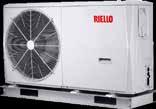
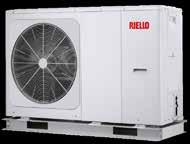

More needs to be done on tackling climate change, a report on the progress to net zero has found.
Mission Zero is the result of rapid review of the government’s approach to delivering zero carbon, published last month (January 2023) by former energy minister Chris Skidmore. The Net Zero Review makes 129 recommendations, including the greater role that business can be supported to play, making better use of infrastructure and delivering more energy-efficient homes.
The review was commissioned following major changes to the economic and political landscape, with Russia’s invasion of Ukraine, historically high global energy prices and high inflation.
The report comes in two parts, with the first section exploring the opportunity and benefits to individuals and the economy,
emphasising that the UK must go further and faster to realise economic benefits.
The second part sets out a roadmap for how the government and industry can work to better exploit the opportunities and catalyse action in individual sectors of the economy, enhancing the role of local authorities, communities and individuals to deliver the green transition.
Chris Skidmore MP says: “We should be proud of the lead the UK has taken in tackling climate change, having exceeded expectations so far in our race to net-zero emissions by 2050. As essential as that is environmentally, it also puts us at an economic advantage globally.
“In developing this report, we have engaged with communities, economists and climate experts from across the country through more than 50 round tables and
NHS Charities Together has received £40,000, thanks to a joint initiative between Vaillant and UK Plumbing Supplies.

For six months last year, Vaillant donated £10 for every ecoTEC boiler sold at a Grahams, HPS, Plumbase, Plumbcity, Gas Centre, Plumbstore, Willbond, Michael Pavis, MDS, UKPS and Plumbstop Profit Centre. The donations were matched by UK Plumbing Supplies.
The money will go towards providing extra support for NHS
staff, supporting them with wellbeing sessions, peer-to-peer support, and one-to-one counselling.
Vaillant commercial director Steve Cipriano says: “For many people working in or relying on the NHS, the past two years have been a massive challenge and have had a huge impact on their everyday lives.
“We hope this donation will go some way to helping NHS Charities Together ensure hard-working staff can continue to access the support they need.”
1,800 submissions – all of which have led to the Mission Zero findings.
“My recommendations are designed to make the most of this historic opportunity, covering the length and breadth of our economy, so that people in every part of the country can reap the benefits of this both in their communities, and in their pockets.”
The report’s proposals include backing business by reviewing incentives for investment in decarbonisation, including via the tax system, and launching a Help to Grow Green campaign to provide information and advice to small businesses so they can plan ahead. The planning system should be reformed to put net zero at its heart nationally and locally.
It recommends backing at least one Trailblazer Net Zero City,
local authority and community that can work towards reaching net zero by 2030.
The proposals say that legislating for the Future Homes Standard will mean that no gas boilers will be installed in newbuild homes from 2025, adopting a 10-year mission to make heat pumps more widespread.
It recommends a cross-sector infrastructure strategy by 2025 to support the building and adaptation of new green energy sources such as hydrogen.
Mr Skidmore urges ministers to grasp the ‘historic opportunity’, highlighting how the government’s Net Zero Strategy offers the right direction and the right policies to do so.
The review was written after a call for evidence and direct engagement with businesses, organisations, local government, academia and the public.
Daikin UK is sponsoring the venue for BBC Earth Experience, a new London attraction featuring Seven Worlds, One Planet.
The immersive digital journey, which opens in March at Earl’s Court, will offer visitors the chance to experience the extraordinary diversity of all seven continents, narrated by David Attenborough.

BBC Earth Experience will showcase footage to fully immerse visitors, with music from the BBC Studios Natural History Unit TV series Seven Worlds, One Planet.
Visitors will take a 360° audio-visual journey to explore iconic landscapes and connect with animals on an adventure bringing environments to life.
Daikin is sponsoring the
purpose-built venue to showcase low-carbon heating and cooling solutions and demonstrate its commitment to lowering the carbon footprint of homes and buildings. The experience will take place in The Daikin Centre, a new, demountable venue.
• www.daikin.co.uk/ thedaikincentre
Training courses are being rolled out in England to grow a skilled workforce of heat pump and energy efficiency installers. The government has put up more than £9 million in funding for the winners of its Home Decarbonisation Skills Training competition.

The funding will pay for free or heavily subsidised training opportunities for installers of clean heating and energy efficiency measures and will be used to deliver 8,900 courses at accredited centres across
Vaillant has announced the death of Martin Butcher, who passed away on 24 December after a long illness.
Vaillant has paid tribute to Martin’s devotion to his career of more than 42 years. He was renowned for his technical excellence not just in Vaillant Group but the wider industry. He joined the company, known at the time as TI Glow-worm, in 1980, in the Research and Development department.
Martin grew his career over many years, starting as a workshop technician, progressing his career as a test engineer and finally became an R&D manager leading the development teams on projects such as the Glow-worm CXI and Flexicom ranges.

Martin also worked on other ground-breaking products such as the Fuelsaver, Hideaway, and the first condensing boiler, the Glow-worm Energysaver.
When the parent company of Glow-worm, Hepworth Heating, was taken over by Vaillant Group in 2001, Martin
England for prospective heat pump and energy efficiency installers.
Organisations will provide appropriate installer training that leads to a recognised NVQ qualification or equivalent and Continuing Professional Development-style short courses.
Organisations providing training include the BESA Academy, CB Heating, Elmhurst Energy, GTEC, Heat Geek, the Retrofit Academy and the North West Skills Academy.
A new FaultFinder digital tool from City Plumbing is helping housing associations diagnose heating system faults and identify replacement parts quickly and accurately.
The tool’s diagnostic capabilities mean that gas engineers will no longer need to be in the property to diagnose the problem.
Aimed at housing associations and private landlords, FaultFinder enables tenants to add details
of their problem to an online portal or over the phone.
This gives engineers the opportunity to restore heat and hot water as quickly as possible by triaging the issue remotely and understanding whether a visit is required or the tenant can fix the issue themselves.
If a home visit is required, engineers can quickly source the correct spare parts from their local City Plumbing branch before arriving at the property.
used his research and development background to support starting the manufacture of Vaillant boilers in the UK.
In more recent years, he took on the role of technical quality manager, managing a small team, supporting the business with understanding legislation changes, SAP updates and, most recently, working towards consultations on the Future Homes Standard and Part L updates.
Martin was a prominent member of the Heating & Hotwater Industry Council (HHIC) technical committee. His wealth of knowledge was never-ending, he showed patience to those who learned from him and was a mentor to many different people over the years.
Martin’s passion for engineering and knowledgesharing led to life-long friendships across the industry and he will be greatly missed by many.
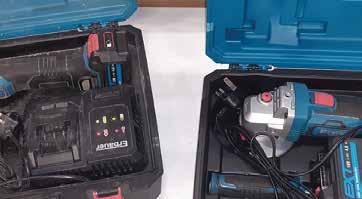
Screwfix is extending its range of refurbished power tools, giving customers more sustainable options.
Last year the retailer launched a successful trial on Screwfix.com, giving tools a second and longer life, and it’s now growing the range to include more than 700 products. More than 75,000 items were refurbished in 2022.
When products are returned, they are fully PAT and functionality tested. All components and instructions are checked, cleaned and refurbished. Refurbished tools are supplied with all accessories and come with a one-year guarantee.
Where it is not possible to repair and refurbish a faulty product, Screwfix recovers spare parts and recycles.

The Strategic Management Board (SMB) is looking for an independent chair for an initial term of two years.
The successful applicant will be expected to chair and facilitate quarterly meetings and any extraordinary meetings, ensuring and monitoring that decisions taken are implemented. They will also act as a spokesperson with key stateholders.
The SMB ensures gas engineers are safe and competent by maintaining the Matters of Gas Safety assessment requirements, covered in the Nationally Accredited Certification Scheme (ACS) and other routes to Gas Safe registration. It also maintains training requirements, covered in the Standards of Training in Gas Work (IGEM IG/1) and associated IGEM training specifications.
The position is not remunerated. Closing date for applications is 15 February 2023.
You can find out more about the role, its requirements and how to apply at: www. registeredgasengineer. co.uk/job/gas-industrystrategic-managementboard-chair/
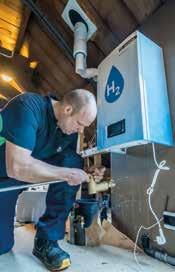
Baxi has teamed up with H2GO Power, an AI and hydrogen storage specialist, to create Heat in a Box, an industrialscale demonstration to create carbon-neutral heating.
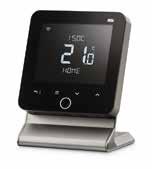
The Heat in a Box trial will be hosted by NGN to supply heat for gas pre-heating and has the potential to supply renewable heating for other operations.
Pre-heating is an essential part of distributing gas, says Baxi. Before gas can be transported to homes and businesses through the network, its pressure must be reduced. This process can cause it to freeze, so pre-heating takes place to enable the gas to flow.


Traditional pre-heating units are highly energy-intensive and, over the past decade, the gas industry has been exploring a range of low-carbon technologies that can carry out the process.
Heat-in-a-box is a containerised solution, combining electrolysis, H2GO’s
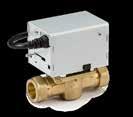
proprietary low-pressure hydrogen storage and Baxi’s hydrogen boiler for commercial applications. The system will be powered by solar PV and supported by an AI-enabled optimisation software platform. HyAI will be installed on NGN’s existing infrastructure to integrate and optimise the overall system operation.
It also introduces the concept of a smart hydrogen gas network. The initiative is being funded as part of the £1 billion BEIS Net Zero Innovation Portfolio, which provides funding for projects that can provide evidence on industrial fuelswitching to hydrogen.
Karen Boswell, managing director at Baxi UK & Ireland, says: “Developing practical, cost-effective ways of storing hydrogen addresses both decarbonisation and energy reliability, making this project a particularly interesting solution for multiple use cases.”
Ariston Group has appointed Edoardo Pauletta d’Anna as its UK managing director. Edoardo has been part of the company for more than a decade, in senior managerial commercial positions. His new role makes him responsible for the growth and development of the Ariston, ELCO and ATAG Commercial brands in the UK.
Edoardo says: “I am looking forward to building upon Ariston’s reputation and offering in the UK. As one of the key international markets for the heating industry, our products and services have so much to offer, especially in terms of improved sustainability and comfort.”
Meanwhile, Baxi’s parent company BDR Thermea Group has started a pilot scheme using its 100 per cent hydrogen boilers in 12 inhabited homes, with hydrogen supplied via an existing natural gas grid.
The pilot in the eastern Dutch town of Lochem is the first time hydrogen heating is being tested at this scale. The detached listed houses, all built around 1900, will each be equipped with one of the boilers, which burn pure hydrogen with zero carbon emissions. The hydrogen is fed into the existing gas grid at a nearby industrial zone.
The scheme will run for three years, ensuring extensive testing in wintertime, when heat demand peaks. The houses were deliberately chosen as older residential housing stock.

From
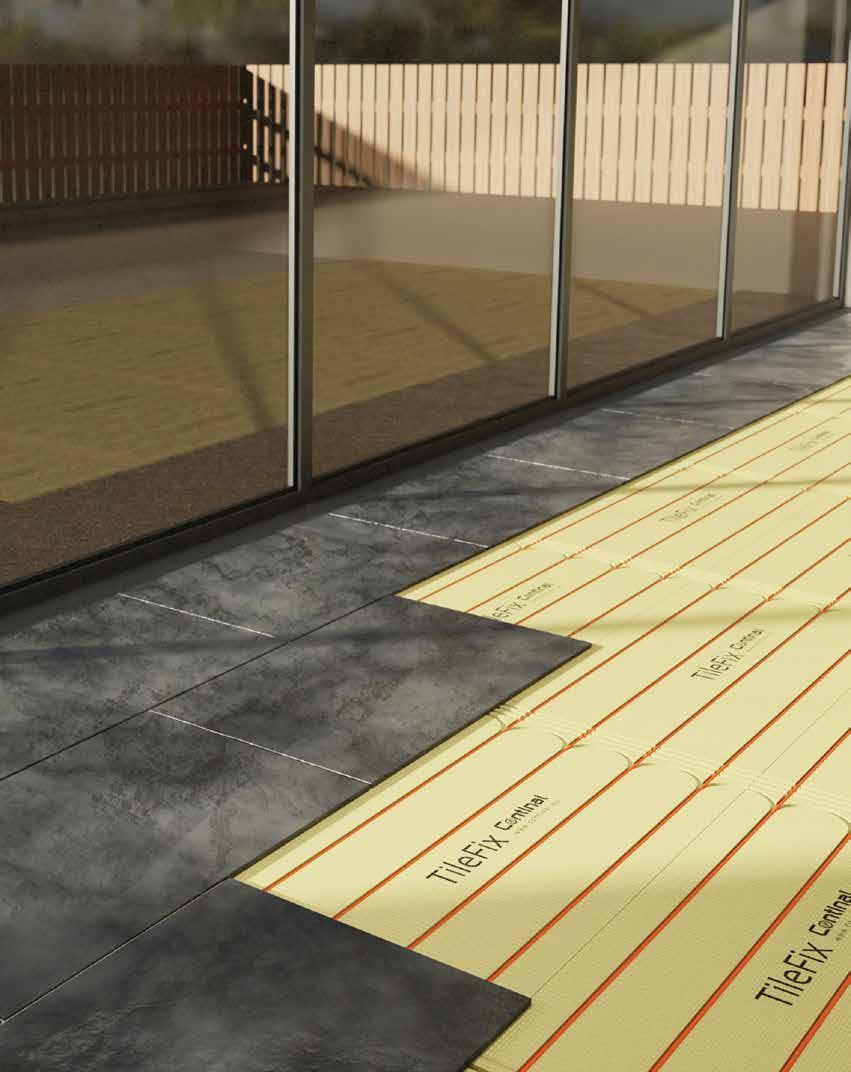
Better boiler efficiency and a more flexible approach to the transition to low-carbon heating are being signalled in the government’s new consultation. Registered Gas Engineer looks at some of the proposals.

The government is proposing measures to improve boiler standards and efficiency, reducing gas consumption and carbon emissions and preparing for the energy transition. It’s encouraging gas engineers to give their feedback to a major consultation, as well as seeking views from industry and consumers.
The wide-ranging consultation covers boilers, controls, hydrogen-ready boilers and the role of hybrid systems.
Boilers
New requirements, similar to the introduction of Boiler Plus, aim to get better efficiency out of boilers, including proposals to:
• Introduce revised requirements for controls installed with boilers, to ensure boilers and controls are communicating in order to modulate boiler output and to deliver lower flow
temperatures
• Address boiler oversizing in combis through wider modulation ranges, so that they efficiently meet space heating demands throughout the
heating season
• Bring system and regular boilers into scope – previous requirements applied to combis only
• Improve heating system design and maintenance requirements
• Improve the minimum standards for hot water cylinders
• Better record in-situ boiler performance and information provided to the consumer
• Develop heating engineer skills and seek ways to improve heating system design, commissioning and maintenance.
The requirements are likely to come in from 2025 and are expected to improve the in-home performance of the average new gas boiler by up to 6 per cent. This will ensure boilers can deliver at, or as close as possible to, their lab-tested efficiency levels.
The government is keen to understand how to ensure correct commissioning takes place and whether more information should be recorded at the time of
The government proposes to proceed with requiring that all newly installed domestic gas boilers must be hydrogen-ready, based on the following assumptions:
• That hydrogen-ready boilers can satisfy regulatory requirements once converted to operate on 100 per cent hydrogen, which includes performance and safety
• They should cost the same as natural gas boilers
• A single definition of hydrogen-ready boilers is agreed, which ensures that products meeting this definition can prepare homes for possible 100 per cent hydrogen conversion.
installation, as well as how this could be made more efficient. It’s also asking about routine servicing, and whether going beyond the current recommended gas checks should be made mandatory. The recommended interval between servicing is also under review, as well as what should be carried out during an annual service.
Updated Building Regulations guidance now requires all new and replacement wet heating systems (including the heating appliance, emitters and associated pipework)
to be designed to operate at 55°C or lower, where possible. The government is consulting on the best ways to ensure that gas engineers have the relevant skills to meet this – for example, by making training in low-temperature heating systems mandatory by incorporating it into regular Gas Safe registration renewal and entry training.
The intention is that new gas boilers must be sold and fitted with Class VI controls, which means weather compensation and room sensors. This definition
Martyn Bridges, director of Technical Services at Worcester Bosch, says: “We’re encouraged that BEIS has taken a system-first approach, not just appliances. They cover controls, correct maintenance and tackling boiler oversizing, instead of simply what appliance should generate heat.
“It is also great to see that a technology-agnostic position seems to be taking place. The ambitious target of 600,000 heat pumps installations per year by 2028 is referenced, but also there is acknowledgment that hybrid systems will contribute to this is a step in the right direction.
“Finally, the proposed mandate that from 2026 onwards, all new domestic gas boilers need to be hydrogen-ready, is the first written commitment that we can recall from government, which again is very encouraging to see and will boost confidence in the possible future fuel.”
allows for controls to include both weather and load compensation functionalities, or just controls with advanced weather compensation.
Despite hybrid heating systems not being eligible for the Boiler Upgrade Grant currently, the government has signalled that they may be able to play a role in the transition to low-carbon heating.
Compact hybrids, in particular,
could become the new minimum standard. The government is looking at whether to require that from 2028, or sooner, all new gas boiler installations must be accompanied by an electrical heat generation element or other renewable or low-carbon system.
It says deploying hybrid heating systems in the 2020s and 2030s could support the growth of the heat pump supply chain, particularly in those buildings

that are less suitable for a low-temperature heat pump. However, it does acknowledge that significant carbon savings depend on system design, the building’s thermal characteristics and consumer behaviour.
Training in hybrids should provide heating engineers with all the competencies required to install a standalone heat pump, says the government, including designing and installing any further equipment or make any required amendments to the home, including radiator changes or installing a hot water cylinder.
The government is currently working with industry to update both the existing Plumbing & Domestic Heating Technician apprenticeship standard and the
Minimum Technical Competencies (MTCs) for individuals to participate in competent person schemes: these allow heating engineers to self-certify certain types of building work against Building Regulations.
The review will consider hybrid heating systems and provide a clear minimum expectation for the skills, knowledge, experience, and behaviours that a heat pump installer should have to be regarded as competent. ■
The consultation closes on 21 March 2023. You can read it in full and respond at: https://beisgovuk. citizenspace.com/heat/ improving-boilerstandards-and-efficiency/
“New requirements, similar to the introduction of Boiler Plus, aim to get better efficiency out of boilers.”
‘Great to see technology-agnostic approach’







Registered Gas Engineer wants to see your pictures – whether you’ve come across some horrors or instances of really good work. Please email your stories and pictures to editorial@registeredgasengineer. co.uk or via Twitter to @RGEMag
Keith Judge says this chimney/flue was on a 16-year-old boiler that had supposedly passed all its safety checks, including flue gas analysis, for the past three years.
Chris Belton was attending a routine repair when he found this chimney/flue installation in the loft space. His photo shows the importance of inspecting chimney/flue routes to make sure they are installed and supported correctly.
Nick Farrant was happy to see that this commercial pipe was sleeved but not so happy about the sleeve not being sealed to the pipe at one end or to the fabric of the building.
Nicholas Roberts’s initial tightness test identified a gas escape, which he traced to the unprotected gas pipe in the catchment space behind a gas fire. It had been covered and corroded through by soot. It has been rectified.
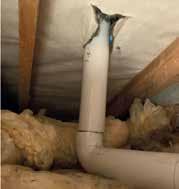
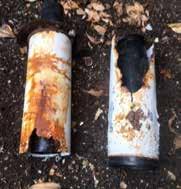
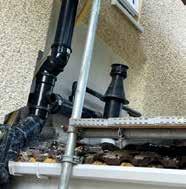
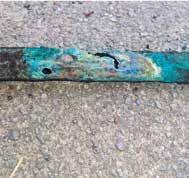
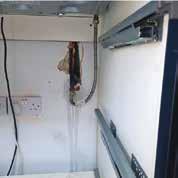
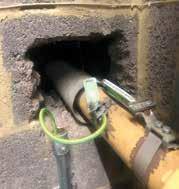
We may share some of your pictures on social media, so remember to include your contact details so we can tag you (or let us know if you’d rather we didn’t).
This chimney/flue installation, sent in by Paul Goodchild, certainly did not meet the manufacturer’s minimum clearances – even before the external insulation was added.
Another hob connected to the gas supply with a flexible water connector, found by Jamie Egan while he was fitting a gas smart meter. The installation was made safe until remedial work could be carried out.

As more and more homeowners choose air source heat pumps, now is the time to invest in your business and partner with Mitsubishi Electric for success.


Why don’t you show how gas engineers are really responding to the energy crisis, Will Jenkins asked us? Great idea, we said, and here he talks to Registered Gas Engineer about the work he’s been carrying out in his own home to reduce his reliance on gas.
We all know that low-carbon technologies can help the UK move away from burning gas to heat and power its homes. And we know that gas engineers will be at the very heart of this shift away from traditional heat systems. So what better way to really find out what work is involved, how it works and the benefits and drawbacks than to do it to your own property first?
That’s what Will Jenkins has been doing. The gas engineer from Malvern, Worcestershire, lives in a 1930s detached house with solid walls. It’s typical of millions of homes that will need to reduce their reliance on fossil fuels if the UK is to reach its net-zerocarbon ambition. “I’m trying it out on my own house first because it’s not the most promising house, so it’s ideal [for a trial],” he says.
Will is keen to point out that gas will still be a part of the UK’s energy mix for some time to come but there are steps that can be taken now to reduce carbon emissions and still stay cosy and warm.
He’s been taking a whole-house approach to energy efficiency since he moved in a couple of years ago, using his own home as a trial. First up – or rather, first down – were the chimneys. They had to be removed so that they didn’t cast any shadow on the solar PV array that’s up on the roof.


Now the roof has eight solar PV panels providing 3.2kW of power into the property via an inverter. That’s enough to run low loads, such as TV and lights. “But people’s demands tend to have higher peaks than what an inverter can deliver. So when you put the kettle on, it might not cover it. And generally, once you put something like an induction hob on, you will need to draw electricity from the grid.”
That’s why going fully off-grid is generally not possible, he says – yet. “We are installing systems so that people can store and offset and use their power in the evening.”
Will’s house is still heated via a gas boiler. But the old gas fire came out when the chimneys were removed and was replaced with a new flueless catalytic gas fire. And next on the to-do list may be a heat pump. ■

Will set up his plumbing and heating company JEGS around five years ago. He’s a Gas Safe registered sole trader covering the areas around Worcester, Ledbury and Leominster, providing a full range of gas heating services including installation and servicing.
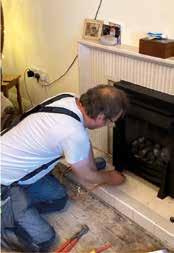
He’s also a qualified electrician and founded SolarHome, the trading name of EV Miles Ltd, in 2019 with a partner. The company focuses on low-carbon, low-energy products, and has a healthy customer order book, he says. “My wife and I try to be as green as possible and it seems to be the direction of travel. I’m getting enquiries from customers who want a whole-house refit.
“We’re going through MCS certification and we have a number of installs going on at the moment. Then we will be able to hand them over with the necessary documentation so that customers can feed their energy back into the grid and get 15p per kW/h.”



Gas engineers across the nation are stepping up to help their local communities as the cost-of-living crisis bites. Registered Gas Engineer talks to some of those going above and beyond to help those in need – and how you can get involved.
Established in 2019, the Warriors of Warmth is a charity campaign spearheaded by Nottingham gas engineer Jonathon Hallam. It’s a group of plumbers and gas engineers who support charities in need by providing free heating and plumbing goods and services, as well as offering energy saving advice. Charities can contact them if they need new boilers, radiators or system upgrades, for example, or if they are looking for help to reduce their running costs.
Jonathon says: “Most charities have seen massive funding and revenue cuts because people’s disposable income has fallen, so being able to come to us for free advice can really help them if they’re experiencing problems with their heating system.
“Most of the trustees I speak to are grateful for the advice we can give, and many have told me of the financial pressures they are currently under, stating that they might not survive the next six months.”
Each year, the Warriors of Warmth help charities such as food banks and homeless shelters with free heating products and labour, with every installation also becoming a potential teaching opportunity for younger gas engineers to gain valuable work experience.
Jonathon created the charity after many years working with foodbanks and being a street pastor, and connects with engineers who help carry out this work via Twitter at @warmthwarriors
He says: “Most weeks I offer technical support, efficiency advice and learning materials to charities and other engineers, backed by the numerous manufacturers who have agreed to support our cause. The
sponsors are absolutely incredible, understanding and generous – each time they donate I’m almost in tears.”
Manufacturers currently supporting Warriors of Warmth include Alpha Heating Innovation, Stelrad, EPH, Lawton Tubes, Fernox, Condense Pro, JG Speedfit, Vitow and Triton, as well as gas engineer Andy Cam.
If you can help support Warriors of Warmth with labour, spare tools for apprentices, or if you know of a charity that is struggling, contact them via social media or go to warriorsofwarmth.co.uk for more information.
DEPHER DEPHER (Disabled & Elderly Plumbing & Heating Emergency Repairs) was set up in 2017 to help older people and those with disabilities who were struggling to pay for heating and boiler repairs.
Created by James Anderson from Burnley, Lancashire, DEPHER has helped tens of thousands of people by carrying out repairs and replacing broken heating systems free of charge.

DEPHER first hit the headlines after a grateful family member posted their story on social media, prompting worldwide donations to help the not-forprofit initiative support even more people. The initiative is funded entirely through these donations and crowdfunding, with heating manufacturers also donating boilers and other products.
James’s work has caught the attention of Hollywood stars, with actor Hugh Grant and his wife, TV producer Anna Eberstein, donating £10,000 in September 2022, on top of previous donations the actor has made.
During the Covid pandemic James expanded the support DEPHER offered even further, donating PPE to the NHS and setting up permanent food banks, distributing parcels to elderly people, those with disabilities, low-income families, NHS staff and key workers. It also provided top-ups of electricity and gas to struggling families.
More recently, DEPHER has been taking calls from people asking for help with other debts and structural issues such as
leaking roofs. The organisation now has 12 members of staff and has been helping people nationwide by enlisting the support of local tradespeople to carry out work, and then paying the bill on behalf of the customer.
Now James wants to expand DEPHER’s reach even further, and has created a GoFundMe to fundraise and turn DEPHER into a national initiative, with the goal of having a DEPHER engineer in every part of the UK.
James says he wants to have a team of emergency staff, including gas engineers, plumbers, handypersons and volunteers, creating a direct workforce that will be employed by DEPHER to deliver potentially life-saving services to anyone in need in the UK.
James says: “We have proven over the past six years that DEPHER can and does work. We are robust and know 100 per cent that this can be achieved. Supporting us will give the people of this country a voice again, a roar of hope and community. With your help we can make DEPHER the next emergency service: a service that everyone can rely on for ever.”
You can read more about DEPHER’s latest fundraising campaign at: www.gofundme. com/f/depher-to-be-in-everytown-city-of-the-uk www.depher.com
“With your help, we can make DEPHER the next emergency service: a service that everyone can rely on for ever.”
When Lincolnshire landscaper Addam Smith found out that his friend Keith Ellick had been diagnosed with terminal cancer, he wanted to do something to make his life a little bit easier. Band of Builders was born in 2016, initially as a plan to landscape Keith’s garden. But the idea won the support of fellow tradespeople and became a full-scale renovation of the house, carried out by volunteers from across the country.

Now Band of Builders completes practical projects of all sizes to help members of the UK construction industry who are battling illness or injury. For each project, volunteers carry out renovations or repairs that make a real difference to their fellow tradespeople’s lives.
In 2022, the charity carried out its 27th project, taking the total cost of donated labour and materials to more than £1 million,
and it’s hoping to carry out up to 12 projects this year.
Band of Builders’ initiative, The Big Brew, encourages tradespeople to come together over a brew to support one another and remove the taboo around mental health in the construction sector. It is focused on improving awareness of mental health issues and routes to support for members of the construction industry, particularly those who are self-employed and in small and medium-sized businesses.
Contractors and their families can text BOB to 85258 at any time to get mental health support.
Peter Cape, the Big Brew lead at Band of Builders, says: “Our text service team are trained to respond to the full spectrum of mental health issues, including abuse, addiction, anger issues, anxiety, bereavement, bullying, depression, loneliness, personality disorders, relationship issues, self-
harm, trauma, work-related stress and even suicidal thoughts.”
The sole aim of the Big Brew, Peter adds, has been to make it as easy as possible for tradespeople and contractors to take that first step and reach out. Last year’s campaign raised enough money to fund a counselling service specifically for the construction industry for two years.
Peter adds: “The new text service has been a welcome addition to the [existing] counselling service – which means we can offer different routes by which tradespeople can get much needed help and support.” bandofbuilders.org
The Rainy Day Trust (RDT) helps people who have worked in the home improvement and enhancement industries who have fallen on hard times. RDT supports professional
tradespeople such as gas engineers, plumbers and electricians, as well as their apprentices and trainees. It also helps people who have worked in manufacture, wholesale, retail and distribution in the home improvement and enhancement industries, such as builders’ merchants, DIY and hardware stores. To be eligible for support, people need to have a low income, less than £10,000 in savings, and have carried out one year’s minimum continuous service at an eligible business or as a sole trader.
Support can involve financial help with essential utility bills or household maintenance, funding for mobility equipment and installations, or telephone counselling and legal advice. RDT can help people access welfare benefits, as well as learn new skills and access training to help further their career. ■ www.rainydaytrust.org.uk
Your customers may be asking you for advice on their heating and energy use if they’re struggling to afford their bills. Here’s some of the support that’s available.
The Energy Saving Trust provides online guidance to lower fuel usage, including cost-effective options to insulate and draught-proof the home to avoid wasting heat, as well as switching to more energy efficient appliances, using heating controls, and making sure the heating is being used in the most efficient way. These are all suggestions that you can make to your customers, with more details available at energysavingtrust. org.uk/energy-at-home
The government’s Energy Saving Advice campaign for households offers tips ranging from quick, free actions that can reduce energy usage, as well as home improvements that will help save more energy over the long term. Alongside each of these actions is an estimate of the average savings they could help to generate.
Suggestions include:
• Turning a combi boiler’s flow temperature down to 60°C –average saving £100 per year
• Turning down radiators in rooms that aren’t being used – average saving £70 per year
• Turning appliances off at the socket when not required –average saving £70 per year
• Washing clothes at lower temperatures – average saving £40 per year
• Installing a smart meter – no immediate saving but it could help your customers see and track how much energy is being used, and by what appliances.
More suggestions at: helpforhouseholds.campaign. gov.uk/energy-saving-advice
Energy bills have rocketed, leaving many households unable to cover the additional costs and owing money to their energy suppliers.
The Energy Bills Support Scheme gives every household in England, Scotland and Wales with a domestic electricity connection
a £400 discount on their electricity bills. This is being paid in six monthly instalments between October 2022 and March 2023. Your customers should already be receiving this discount, with their energy supplier applying the funds to their monthly household electricity bill.
Those using prepayment meters get equivalent vouchers that they redeem at their top-up point. Customers with any questions about the scheme should contact their electricity supplier directly.
Anyone who is in debt with their energy bills should always speak to their supplier to discuss their options. Energy arrears are considered a priority debt, which means they should be paid before other debts such as credit cards, but suppliers have an obligation to try and work with their customers to find a mutually agreeable solution.
The supplier can create a payment plan, taking into account how much the customer can afford to pay, and how much energy they’ll use in the future. The payment plan will then cover the estimated current energy use, as well as taking an additional amount to help pay off the existing debt.
If your customer receives benefits, they may be able to repay their energy bills directly through the Fuel Direct Scheme. This takes a fixed amount from their benefits to cover the debt and estimated future energy bills, until the debt is paid off.
To access the Fuel Direct Scheme, people need to be in receipt of:
• Income-based Jobseeker’s Allowance
• Income support
• Income-related Employment and Support Allowance
• Pension credit
• Universal credit (if they are working, they can only access the Fuel Direct Scheme if their earnings are less than their work allowance).
Contact the Jobcentre, or the Pension Service if they receive Pension Credit, to find out more about the Fuel Direct Scheme.
Customers on benefits may also receive an automatic £150 Warm Home Discount, either applied directly to their electricity bill or added to their prepayment meter by their supplier. This is available to people receiving certain benefits.
Those eligible should have received a letter from their supplier in mid-January. If they
haven’t and they think they may be eligible, they should call the Warm Home Discount helpline on 0800 107 8002 before 28 February.
Customers who can’t afford to top up their prepayment meters may be eligible to receive a fuel voucher from their local council, which can be redeemed at the Post Office or any shop signed up to PayPoint or Payzone.
If your customer uses heating oil or biomass instead of gas or electricity, the government is providing a £200 Alternative Fuel Payment, which will be applied automatically to their electricity account by the supplier this month (February). If they do not have a contract with an electricity supplier, they can apply for the payment on www.gov.uk from February.
Winter Fuel Payment
Anyone born on or before 25 September 1956 should have automatically received a Winter Fuel Payment of between £250 and £600, depending on their age, in either November or December 2022, though sometimes they may need to apply for the payment.
Find out more at www.gov.uk/ winter-fuel-payment
Many major energy suppliers offer grants and payments to customers in need and anyone can apply for a grant from the British Gas Energy Trust, even if they are not a British Gas customer.
Find out more about the support available at:
www.citizensadvice.org.uk/ consumer/energy/energysupply/get-help-paying-yourbills/grants-and-benefits-tohelp-you-pay-your-energy-bills
Older non-condensing boiler installations in unheated spaces, such as a garage, outhouse, or loft space, rely on good insulation of pipework, cold water storage (CWS) and feed and expansion (F&E) tanks. The boilers themselves often need additional frost thermostats and pipe thermostats: these override the normal heating controls and fire up the boiler in the coldest of temperatures.
Some boilers also have a spring-loaded safety valve screwed into the cast-iron heat exchanger to relieve the expanding pressure on the boiler if the cold feed and vent pipe should become frozen.
Many newer heating systems use combi or system boilers, and system boilers usually heat an unvented hot water cylinder, which means that CWS, F&E tanks and pipework in roof spaces are a thing of the past. Newer boilers have built-in frost
protection instead of relying on external controls.
It’s important to insulate all exposed pipework in unheated spaces, but the most likely cause of damage to a modern boiler in sub-zero temperatures will be a frozen condensate pipe that has been run externally.
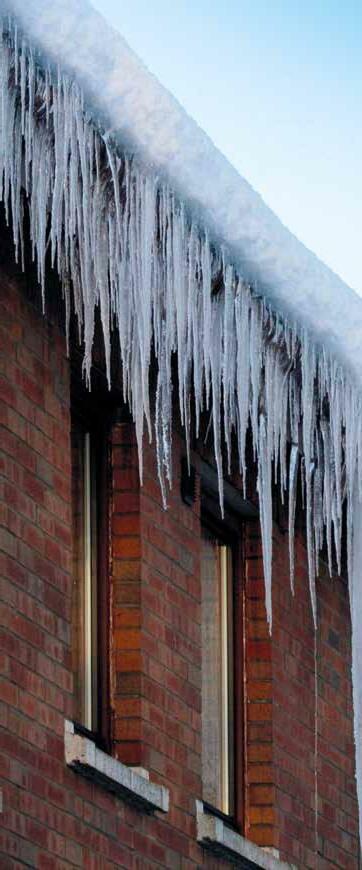
When the condense pipe freezes, condensate backs up inside the boiler causing damage that could lead to expensive repairs.
You should only consider fitting an external condensate drain connection if internal gravity or pumped connection is impractical to install.
Where the condensate must be run to an external drain, make sure you follow the manufacturer’s instructions and BS 6798*, which require the condense pipe to be run internally as far as possible before going outside. The pipe
Insulation: prevention is better than cure
There are many good reasons for insulating the home, including insulating the water pipework in unheated or exposed areas. For a low initial outlay, insulation will save on energy and reduce heating costs, and help to reduce the impact of greenhouse gases. Insulating water pipework prevents the likelihood of freezing in prolonged cold periods. Damage to property – including heating systems – can happen when pipes initially become frozen or when the temperatures rise again and damaged frozen pipework thaws out to expose leaks.
Make sure your customers know where their pipes are and how to shut the water off. When pipes freeze, speed is critical: the quicker the water is shut off, the better the chance of preventing serious damage.
Make sure gas appliances are serviced every year in accordance with the appliance manufacturer’s instructions. This helps to ensure that they operate safely and helps prevent breakdowns at the time when they are needed most.
Gas Safe Register’s technical team look at the measures that should be taken to protect boilers, heating systems and homes from the damaging effects of winter weather.
Outside taps: Use a suitable insulating cover to protect outside taps from wind-chill and freezing conditions. It’s also a good idea to fit an additional isolation valve inside the property before the outside tap.
Holidays: Homes that are left empty during the winter can be
diameter must be increased to a minimum of 30mm ID (typically 32mm OD) before it passes through the wall.
The angle of the pipe should slope downwards by at least 3° as it passes through the wall to help maintain a good velocity as the condensate exits the building.
The external pipe run should be kept as short as possible, to a maximum of 3 metres, taking the most direct and most vertical route to the discharge point. There should be no horizontal sections in which condensate might collect.
protected from freezing by several measures:
• Add antifreeze to the central heating system: this is especially useful in properties such as residential park homes or holiday homes.
• Leave the central heating switched on and set the room thermostat to a low

To minimise the effects of wind-chill, the open end of the condensate pipe should terminate below the grating and above the water level. It should also be covered by a drain cover, such as those used to prevent blockage by leaves. The pipe must be insulated from the point where it emerges from outside the external wall of the building, using suitable waterproof and weatherproof insulation.
Alternative methods of protection may be used, as specified by manufacturers, and products such as those

temperature setting.
• If the loft space has cold water storage and feed and expansion tanks, and you are concerned about freezing in a prolonged period of sub-zero temperatures, open the loft hatch slightly at one end to allow some heat to circulate into the loft.


that preheat the condense before it leaves the thermal envelope of the dwelling can be used too.
Remember: When installing a boiler, any horizontal flue exiting the property needs to be installed at least 300mm above flat surfaces to avoid becoming blocked by snow or leaves. ■
*BS 6798: Specification for selection, installation, inspection, commissioning, servicing and maintenance of gas fired boilers of rated input not exceeding 70kW net
When condensate freezes, it will cause the boiler to go into shut-off and many customers will turn to you for help. However, there are steps that they can take themselves, and it’s worth having these to hand if your customer calls:
1. Locate the blockage
The condensate discharge pipe usually freezes at the most exposed points outside, such as the open end of the pipe, at a bend or elbow, or where there is a dip in the pipe where condensate can collect.
2. Thaw the frozen pipe
Apply a hot water bottle or a microwaveable heat pack around the blockage, or pour warm water on to the pipe. Never use boiling water.
3. Reset the boiler.
Source: HHIC Customer information: Frozen boiler condensate discharge



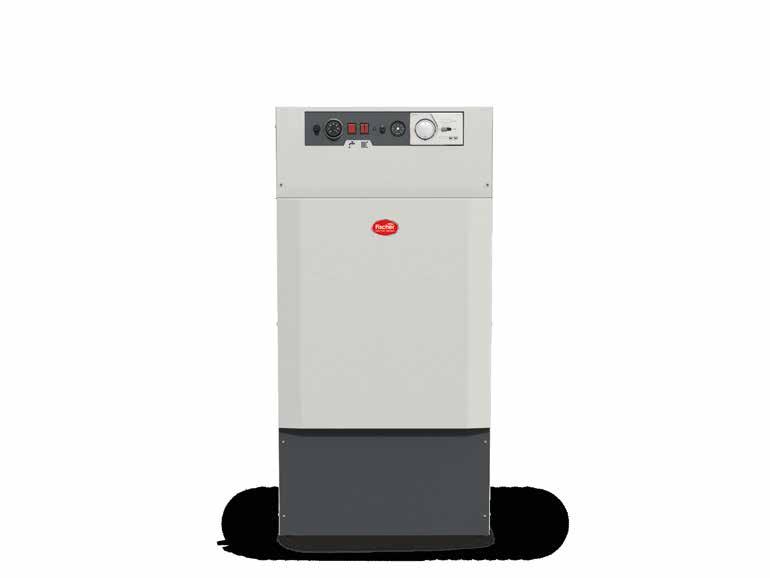
Gas Safe Register’s Technical Team answer some of the questions that they most regularly receive on the Technical Helpline.
If there is no CO alarm fitted in a rented property, should I record At Risk on the landlord’s gas safety record?
No. The landlord’s gas safety record is an annual report required to confirm that the gas appliances at the property are safe to use. The engineer is required to complete the appropriate tests on the appliances and record the results on the report to confirm that they are working safely.
Many records have the option to record CO alarms within the property; however, this is an option, it is not mandatory. If there are no CO alarms installed, this does not in itself deem the appliances to be unsafe. Simply choose “no” on the report in the field that asks whether a CO alarm is fitted. You can also highlight this in the section for remedial work required to alert the landlord: it is their responsibility to ensure that one is fitted – not yours.
Is there any leeway for the renewal date on a landlord’s gas safety record?
The renewal date is the date by which the next safety check must be carried out. There can be no overrun of this date. However, GSIUR Regulation 36 now allows for “MOT-style” checks that can be carried out up to two months early, while retaining the renewal date.
You can call Gas Safe Register’s Technical Helpline on 0800 408 5577, choosing Option 2. The helpline is open from 0800 to 1800 Monday to Friday and from 0830 to 1230 on Saturday. You can also ask a question via email at: technical@gassaferegister.co.uk
For instance, a landlord’s gas safety check that is due for renewal on 12 April 2023 can be carried out any time between 12 February and 12 April, and the renewal date would be 12 April 2024. The previous two safety records must be retained by the landlord for this to come into effect.
You can find out more in Technical Bulletin 055: The Duties of Landlords, which can be downloaded by logging into your online account at: www. GasSafeRegister.co.uk/sign-in
I have a gas hob installed with no flame safety device (FSD): is the appliance unsafe?
No. FSDs are required on gas cooking appliances if they are installed in any flats or multioccupancy buildings. Existing cooking appliances installed in these properties without FSDs fitted would not be classed as being unsafe: however, they do not meet current standards. Any new cooking appliances fitted in this type of property are required to have FSDs fitted.
You can find out more in Technical Bulletin 015: Technical Bulletin 015 the requirement to install gas appliances (including
cooking appliances) with flame supervision devices in flats and other multi occupancy buildings, which can be downloaded by logging into your online account at: www.GasSafeRegister.co. uk/sign-in
Why does my unvented hot water cylinder qualification not show on my ID card or on the Gas Safe website? Unvented hot water is a plumbing qualification and, as such, certification bodies do not always inform Gas Safe Register when an engineer has successfully completed this course. You should send a copy of the certificate to: enquiries@ gassaferegister.co.uk and ask for it to be added to your qualifications.
My gas qualifications have expired but I have just re-sat them at the training centre. Can I carry on doing gas work now?
No. It can take four to six weeks for your new qualifications to reach Gas Safe Register. When the certification body has successfully audited the paperwork, it will inform Gas Safe Register that your
qualifications have been renewed. Only then can you carry out any gas work. Our advice would be to make sure you know when your qualifications expire and book a date at your local gas training centre at least two to three months beforehand so as to avoid any issues.
I’ve been asked to install a secondary gas meter or alter a gas meter position for a customer. Can I carry out this work?
The CCN1 qualification only allows you to temporarily remove and refit a gas meter for safety while undertaking hot work such as soldering gas installation pipework. Meter work such as installing, exchanging or moving primary or secondary gas meters requires the appropriate meter qualifications, such as MET1. You can find out more in Technical Bulletin 127 Gas industry guidance on work on meter installations, which can be downloaded by logging into your online account at: www.GasSafeRegister.co.uk/ sign-in ■
Tool theft is never far from the headlines. Registered Gas Engineer looks at the scale of the problem and some of the initiatives trying to fight back and protect your possessions.
Many of you will have had to deal with tool theft during your professional career – or you’ll know someone who has had to. On average, tradespeople are likely to have their tools stolen at least once1, according to a Tradespeople Against Tool Theft white paper by On The Tools, in partnership with Simply Business. But some of you say you’ve had your tools stolen many times over the years.
The Metropolitan Police recorded 21,630 tool theft offences and 6,839 van theft offences in the UK between 2020 and 2021 but the true figure is likely to be much higher.
Victims are often unable to work until their tools can be replaced, and the white paper found that 23 per cent don’t report the theft to the police. This is hardly surprising, when the same white paper also found that less than 1 per cent of tools stolen are ever returned to their owners.
Instead, nearly four in 10 people turn to social media, according to research from Direct Line for Business2, sharing warnings to others in their area, asking people to keep an eye out for potentially stolen tools being sold on, and keeping abreast of tool theft incidents nearby.
Direct Line’s research showed that few people take additional steps to protect themselves from the effects of tool theft.
The same applies to securing vans, with only 27 per cent protecting vehicles with steering locks or installing a CCTV or alarm system (24 per cent).
More than one-quarter (27 per cent) always or frequently leave tools in vehicles, and 38 per cent of those who do say they do not have insurance to cover them from overnight tool theft.
It’s important to make sure that your tools are insured in case the worst does happen.
The right insurance will cover the cost of replacing them – but always read the small print before you buy the policy as many insurers won’t cover tools if they’re left in a van overnight, unless the policy specifically includes overnight cover.
With 28 per cent of all tools stolen from vehicles, adding extra security is a great place to start. Especially when you consider that vehicles themselves are often damaged when they’re broken into.
So how are most tools stolen and what can you do to prevent it? Direct Line for Business has
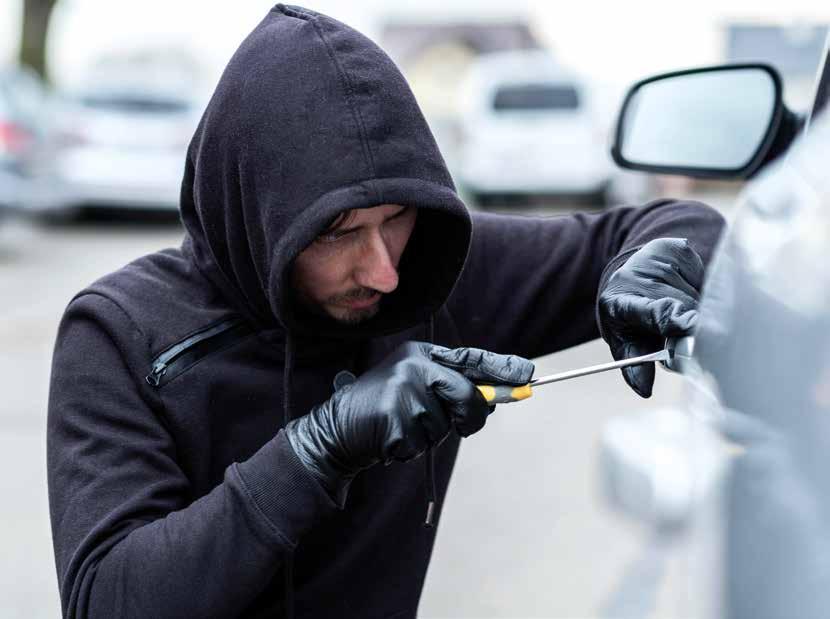
21,630
various suggestions as well as modifications that you can make to your vehicle to make it harder to break into (see right).
Empty your van
Many thieves are opportunists who will smash a window when they see tools or valuable goods inside and grab what they can. Fitting a vehicle alarm can help, as can emptying your van of anything valuable at night, or at least making sure it’s hidden from view.
In many vans, anti-theft sensors will monitor the front because it’s the easiest point of entry. But what about the roof, sides or back door? Doors can be peeled back or cut through without breaking any locks or setting off alarms. One defence is to park your van in a locked garage or in a well-lit area where thieves are more likely to be seen.
If your vehicle operates with a wireless key fob, it could be more vulnerable to theft. Hackers can scan for the key’s wireless signal then replicate it to fool the van into opening the doors. Scanners have a limited range so keep your keys well away from the vehicle. You could also store your keys inside a small ‘Faraday box’, which blocks the wireless signal.
Always make sure that you check with your insurer to make sure any changes you make to your vehicle won’t invalidate your policy. ■
Protection measures
Lockable toolbox
Around £230 (Van Vault 2)
Alarm system with immobiliser Around £400
Catalytic converter lock Around £200
GPS tracking
Wheel lock
Typically around £250 plus an annual subscription
Around £100
Separating the cab from the back with a physical barrier to reduce the number of points of entry £90-£300
Slam lock that only you have the key for £70 plus installation
CCTV/alarm stickers £5
Source: Direct Line for Business
1 https://www.onthetools.tv/home/tradespeople-against-tool-theft-whitepaper/
2 https://www.directlinegroup.co.uk/en/news/brand-news/2022/050420220.html
Many trade insurance policies overlap, so make sure you’re not paying twice for the same type of cover. Your public liability insurance could include tools cover, for example, or you might find you have legal cover on more than one policy. Try not to over or under-insure yourself.
Companies have been offering their own support to tradespeople who have suffered from tool theft to help them get back to work faster.
Merchant Williams & Co’s Tool Angel initiative lends victims a tool kit worth £2,300+, for three weeks, so that you can continue to work while replacing your lost equipment. As long as you have a crime number and are within the merchant’s delivery area, you can request a kit and you don’t have to be a previous customer.
The kit is delivered in an armoured secure toolbox, and includes products from Armorgard, Makita and Kane. After three weeks the kit is collected free of charge and you can also get a 15 per cent discount to buy a new kit of your own. More details at: www.tradeonlyplumbing. co.uk/tool-angel
If you have ARMD insurance, you make a claim for stolen tools via the app for any tool that has been registered in the ARMD inventory. When you’re registered with ARMD, you receive a van sticker and, if you share a picture of your displayed sticker on social media, tagging two friends and including certain hashtags, you will also receive £20 of store credit. More information at: www.armd.uk/sticker
22% <1%
don’t report tool theft to the police of stolen tools are returned to their owners
Gas engineer Billy Wilgar talks to Registered Gas Engineer about why the need to manage his business better prompted him to create the Surefire management system for plumbing and heating businesses.


Iserved my plumbing apprenticeship in Belfast in the 1970s before moving to England in 1980. By 1984 I was working for myself: on the tools all day, then doing all the estimating and quoting at night and on the weekends.
Back then, I did all the quotes and my wife did the estimates, all while raising four young children. She would type out my quotes at night, then the next day I would come back with a catalogue, price up the materials, then she would correct the estimate and send it out by post the next day. It would take at least five days to get a quote back to a potential customer – but that’s just what you had to do.
By 2000 I’d built some houses and become an NHBC-registered builder while continuing with the plumbing and heating business. But it got to the stage where trying to keep up with my diary and all the business admin was crazy and just so stressful on us both.
That’s why I started looking for business management software, to find something that would help me cope. There was nothing available back then that was specific to plumbing, so in the end I bought a licence for a big piece of customer relationship management (CRM) software. The problem was that it was designed for large companies, so we only really needed to use 5 per cent of its features.
In 2004 I had a chance meeting with a young man in York who had just qualified as a software developer, and together we began creating what became Surefire. He built an app that ran on a handheld PDA long before apps were a thing, before smartphones, and what it could do just blew me away.
It wasn’t long before my plumbing and heating business, AC Wilgar, was running a system that was way ahead of its time, and it’s continued to evolve from there.
I talk to engineers daily and the headaches of running your own business are the same 20 years on. I think one of the reasons why Surefire works so well for plumbing and heating businesses is because it’s been tested through my own company. We now employ 43 people, so Surefire has grown in scale and features as AC Wilgar itself has.
A real benefit of management systems like this is that payments go through with no need for human interaction. Software just generates an invoice and synchronises automatically with accounts on both Xero and QuickBooks, so we never have large amounts of customer debt outstanding.
By contrast, back in 2006, we had five or six plumbers working for us and the company was owed £112,600. But when we introduced a payment facility on to our app so that customers could pay us digitally, we collected every penny of that debt within the first month, because we’d made it so much easier for
customers to pay. It also helps that invoices are generated, so we weren’t making the mistake that so many businesses do, and leaving the invoicing for weeks because we’re so busy working on the next job.
I spoke to a self-employed engineer two weeks ago who was owed £26,000 purely because he hasn’t got around to invoicing his customers and hasn’t had a
materials for a job would be £1,000, and then I’d add, say, £400 for labour and that would be my quote. But often, when I went to purchase it, the materials would cost £1,080, so immediately I’m £80 down on my labour – and it’s worse now that prices are changing so quickly. Our software quote tool plugs directly into the merchant’s system, so it gives a live price on everything we need to buy. When we quote, we create a basket through the merchant with all the components we’ll need, push the button, and it generates a quote using my net terms with the merchant. You can’t be more accurate than that.
chance to chase the ones who haven’t paid. It’s so common, and the longer the customer has the money in the bank, the less they want to part with it, or the higher the risk that they’ve spent it on something else. And then when you do chase, they suddenly become an angry customer.
When I was quoting for a job, I always knew roughly how much a particular boiler was and how much copper tube was, so I would have a rough idea that the
We’re currently testing a booking engine that allows customers to go online and book a service. When they enter their postcode, it immediately checks the engineers who cover that postcode and, if they have a slot available, it’s booked immediately. Then, the night before, the customer receives a text reminding them about the appointment and giving them a three-hour window. That’s already massively reduced calls from customers asking where their engineer is, which frees up everyone’s time in the office. ■ www.surefiresoftware.co.uk
“Trying to keep up with my diary and business admin was just so stressful.”
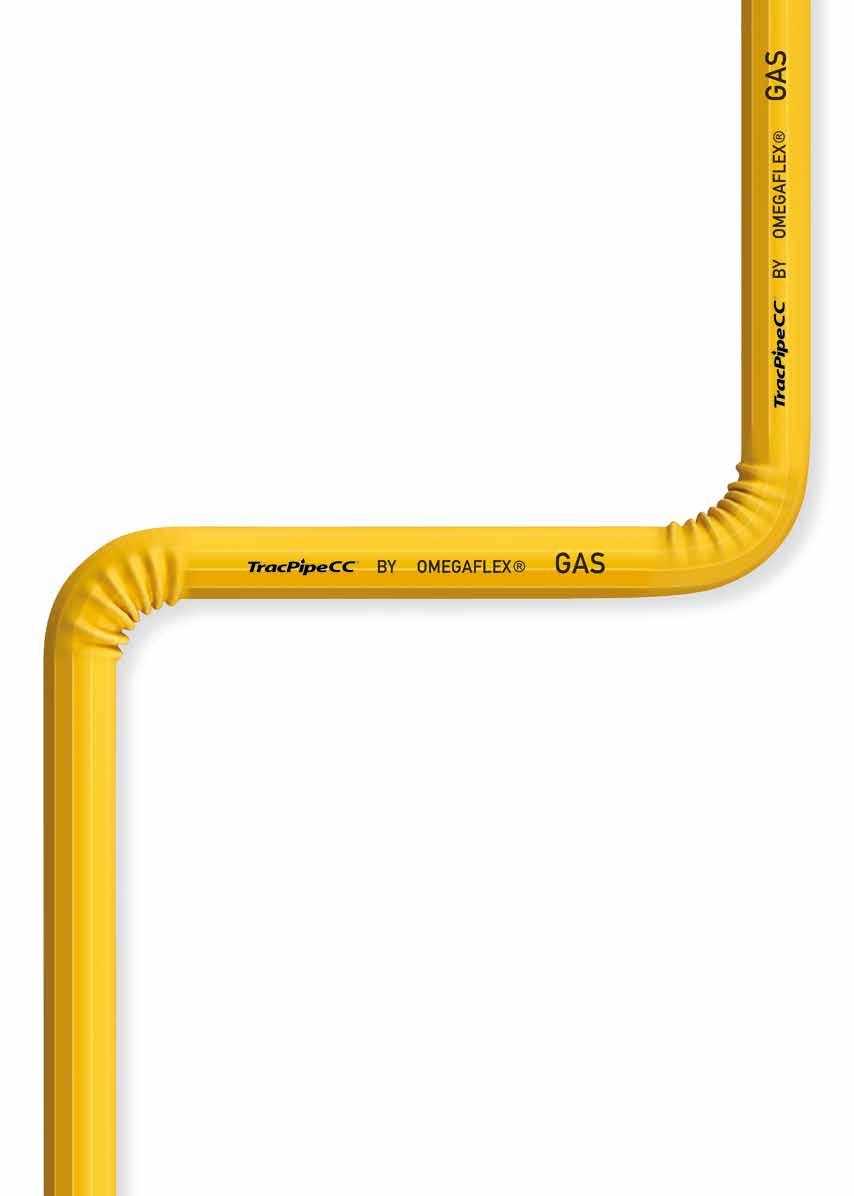




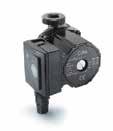
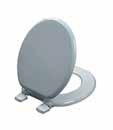


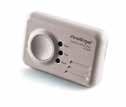

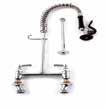
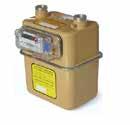



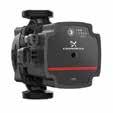
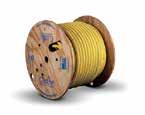
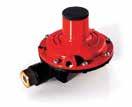

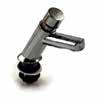

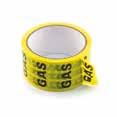






What are the key water treatment processes that you should apply in order to comply with the 2022 updates to Part L of the Building Regulations? Fernox head of chemistry Richard Crisp has some answers.
The latest revision to Part L of the Building Regulations in England came into effect last June as a major step in the government’s drive for the UK to become carbon-neutral. The regulations cover the Conservation of Fuel and Power and concern the thermal performance and energy efficiency for new and existing buildings, including a focus on the treatment and maintenance of central heating systems.
For heating engineers who are already familiar with BS 7593:2019*, the changes should be largely straightforward, as much of the recommended guidance was formally upgraded to legal requirement in the revision to Part L.
Fernox has advocated the principles of BS 7593 for many
of cleaning is powerflushing, which increases the flow rate in the system to aid the dispersion of debris. This process may also be evidenced as part of the Benchmark Commissioning Checklist, which engineers can complete as a means of showing compliance with with the Building Regulations.
Guard
To capture sludge and debris that has built up, in-line filters help to keep central heating systems clean and working at optimum efficiency. It should therefore come as no surprise that fitting a filter is now mandatory.
When specifying a filter, consider the type of filtration technology as this will have a fundamental impact on the amount and type of debris that
details of this procedure can also recorded on the Benchmark Commissioning Checklist and the specific brand of inhibitor used at the time of commissioning.

years as a best-practice approach and has welcomed these updates to underpin the essential role of heating system health in relation to optimising energy performance.
Clean
The regulations mandate that central heating systems must be cleaned either before any new heating appliance is installed or when isolated from the rest of the system, to dislodge and remove system debris, limescale and sludge build-up. This process is widely acknowledged for its role in improving the energy efficiency of the system by restoring the heat distribution throughout the property and therefore lowering its energy usage.
A particularly effective method
will be captured and contained and, therefore, the overall energy performance of the property. Filters with hydronic particle separation (HPS) technology and magnetic filtration can remove both magnetic and non-magnetic system debris quickly and efficiently.
Correctly dosing central heating systems with an inhibitor to minimise the formation of corrosion debris and limescale has long been part of the best-practice approach to central heating system maintenance. The obligation to carry this out has been reinforced in the revisions to Part L.
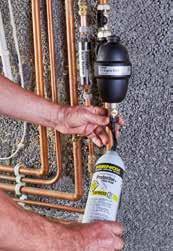
As with the cleaning process,
The government has continued to address the harmful impact that limescale can have on the heating system’s energy performance. As such, the stipulation that provision is made to reduce the rate of limescale in hard water areas which exceeds 200ppm remains, and this can be achieved with a quality electrolytic/magnetic scale reducer.
Furthermore, the government has set out that new and replacement heating systems in both domestic and non-domestic buildings should operate at lower flow temperatures of 55°C, where possible. For heat pump applications, a flow temperature of 45°C should be used to achieve maximum Co-efficient of Performance (COP).
It is not currently a legal requirement but it is still imperative that these systems should be dosed with biocides in order to prevent microbiological fouling, which typically can occur at temperatures lower than 60°C.
Filters must be cleaned regularly to remove the sludge and debris captured as part of the annual boiler or heat pump service and according to the manufacturer’s instructions. Filters that are sealed and do not have a lid and can be flushed and cleaned in-situ through their drain valve are an ideal solution.
To ensure that the system is adequately protected and therefore running efficiently, you should carry out an on-site test of the system water during the boiler service, and this process can also be confirmed on the Benchmark checklist. In addition, the system must be either re-dosed with inhibitor or a full laboratory analysis of the system water conducted (and re-dosed with inhibitor if required) every five years. Leading manufacturers have made compliance with this simple, using quick on-site kits and apps. n
www.fernox.com/part-lbuilding-regulations
“The government has addressed the harmful impact that limescale can have on the heating system’s energy performance.”







Can you powerflush a microbore system? That’s the most frequently asked question during Kamco’s training sessions. Here, the company’s Keith MacBain sheds some light on the topic.
With modern high-efficiency boilers, and particularly those fitted with ErP pumps, keeping the heating system clean has never been more important, and boiler warranties often depend on it.
It has long been accepted that the most effective way of flushing a heating system is with a powerflushing pump, and many thousands of systems are cleaned every day using this method.
However, being asked to clean microbore can cause most engineers to wince. They can be powerflushed but you need to plan ahead and expect the job to take longer than other types of system, particularly if piping to the radiators is the old 8mm copper tubing – in which case some ingenuity may be needed. And don’t think that microbore is a thing of the past: many modern systems may have main runs in 22mm pipe but with only 10mm drop feed pipes down to the radiators themselves.
The laws of physics dictate that the flow rate needed to move debris of a given size in pipework reduces with the diameter of the pipework. Before quoting for any flushing job, always fire the boiler and inspect the condition and heat output of each individual radiator. This is even more important with older microbore systems.
A sight engineers would prefer not to see is microbore systems with twin-entry radiator valves (both valves on one end of the radiator). If the internal tube that should take the hot water to the far side of the radiator is missing or has fallen off, that particular radiator can’t be powerflushed.
How would you know if the tube is there or not? If warm
water is circulating through the system, check the radiators carefully. If they are only warm immediately adjacent to the twin entry valve, and cold elsewhere, the tube is missing, and you can’t powerflush this radiator.
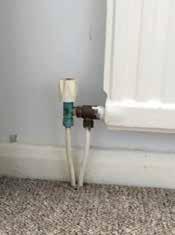
During your inspection visit, pre-treat the heating system with a powerful flushing chemical, and even consider double-dosing. You’ll want the debris broken up as finely as possible before carrying out a flush on microbore.
If possible, the heating system should be operated normally until you can return to carry out the powerflush.
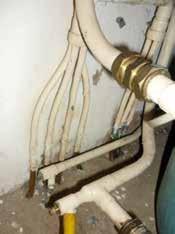
Connection of the powerflush pump should be on to the circulator pump fittings, a circulator pump head adapter, or on to larger diameter (22mm) pipework. It should never be on individual small diameter radiator tails or pipework otherwise the overall flow rate to other parts of the system will be so low as to be ineffective.
As with all powerflushes, it is very important that the full procedure is carried out,
with the flow directed individually to each radiator, in line with BS 7593:2019* guidance.
What happens if there is no flow to a radiator on a microbore system during a powerflush?
Powerflushing pumps rely on a high flow rate but generally limit pressure to only a few bar to avoid stressing systems. If normal powerflushing doesn’t clear a radiator on a microbore system, it may be that a plug of compacted sludge is blocking the narrow diameter pipework (typically 8mm copper) leading back to the manifold where it feeds from larger diameter pipe. This often occurs where the pipe has been bent sharply to avoid joists or some other obstruction.
If the pressure from your powerflushing pump is not enough to move the sludge, a useful work-around is to pressurise just the problem radiator, using air rather than water pressure.
This can be done via either the air bleed valve, or the ½” BSP plug found at each end of the top of most radiators, using a small air compressor or hand pump to raise the pressure in the radiator.
A useful tool is a dry pressure testing device. It consists of a pressure gauge and a Schrader valve of the type used on car tyres. It can be adapted to screw into the ½” tapping to be found on the top of most radiators using PTFE tape to seal.
The technique is to close both radiator valves, remove a ½” plug from one end of the radiator, and screw in the tool. Connect a foot pump or compressor on the Schrader valve and pump up to approximately 4 bar air pressure.
Quickly open one radiator valve wide and hopefully there will be a gurgling noise as the air pressure dislodges the plug of sludge. Close the radiator valve, pump up to 4 bar pressure again and open the radiator valve at the other end of the radiator.
Your powerflushing pump should still be connected into the system, and now is the time to direct the full flow to the problem radiator, reversing the flow regularly. If you have hot water in the system, a hand on the radiator or an infra-red thermometer will tell you how successful you’ve been.
Once you’ve overcome the specific problems likely to be found with a microbore system, the powerflush should be carried out in the full sequence of events as detailed in BS 7593:2019 or according to the manufacturer’s instructions.
For further information and techniques on successful powerflushing, it’s a good idea to sign up to a manufacturer’s training course, where you can not only learn what to do but also what not to do. ■
With energy costs having risen dramatically over the past 12 months, it makes sense to make sure that heating systems are performing efficiently. Here, Dave Goodyer, Spirotech area sales manager, looks at how water treatment solutions have evolved and some of the key steps that heating engineers should be recommending.

Over the past few decades, the number of different water treatment solutions has expanded. It’s important to be aware of the different options available to you, as well as which combination should be used to ensure that any heating system will perform at its best.
More attention is being paid to what’s inside the pipework. As the first port of call to understand the quality of a system, heating engineers have become familiar with the need to carry out water analysis.
Not only does this help to determine the nature and cause of any problems, but it also checks pH levels and identifies any types of dirt present, so that they can decide on any necessary action.
But flushing alone will only remove a certain amount of dirt and debris. Any contaminants left behind can start to build up, leading homeowners to experience annoyances such as radiator cold spots, noisy pipework and, in more serious cases, parts breakdown.
Because the boiler is forced to work harder to deliver the desired levels of heat, this can also lead to higher-than-expected energy bills.
This is where fitting a dirt separator on the return comes in. A reduction in flow velocity facilitated together with a laminar no-flow zone and external magnet ensures that any magnetite caused by corrosion, along with non-magnetic particles, is captured and removed before they can enter the boiler and re-circulate around the system.
People understand the need to remove contaminants from the heating system, but it’s also valuable to also understand how dirt and magnetite are created, and how their formation can largely be avoided. They all boil down to the presence of one factor: trapped air.
By removing air from the system, the conditions for magnetite to form and the corrosion process are greatly reduced: an automatic air vent (AAV) simply will not suffice.
internal surfaces and gradually corrode the system, creating the magnetite that is collected by dirt separators.
Fitting a deaerator effectively and continuously removes microbubbles from the heating system. A deaerator fitted on the flow pipe, at the point in the system with the highest temperature and lowest pressure, will create the right conditions for microbubbles to rise upwards out of the water, before being released by the automatic valve at the top of the unit.
Some chemicals are required to perform important system maintenance functions – to kill bacteria, for example. After the system has been cleaned with chemicals, a powerflush should be carried out to remove any other magnetite, sludge or debris.
This should always be carried out before commissioning a new heating system as well as when working on an existing system.
Since the introduction of the first dirt separators more than a decade ago, their popularity has grown hugely, as their installation has been stipulated by many boiler manufacturers in order for the warranty to remain valid or to obtain an extended warranty.
Dirt separation units will become more widely installed, as a permanent in-line filter is now required on all types of wet system.
Failure to remove microbubbles can be hugely problematic. If left untreated, they will eventually be re-absorbed into the system water, where the oxygen will react with any ferrous
Combining these water treatment solutions will improve the quality of heating systems and help your customers keep energy usage to a minimum, in turn reducing costs. ■
Spirotech’s Better Heating toolkit at www.betterheating.co.uk includes informative videos on how air and dirt removal works, and the impact that they have if left untreated.
New for 2023, installers can also register to become a Spirotech Approved Installer and have their business details listed on the new Find an Installer tool, helping to connect them with potential customers in their area looking to learn more about air and dirt removal.
www.spirotech.co.uk
“If microbubbles are left untreated, they will eventually be re-absorbed into the system water, where the oxygen will react with any ferrous internal surfaces.”
It’s important to keep your knowledge and skillsets up to date with regular training, writes Navien’s national technical manager Sean Keleher.
With 26 million homes on the gas grid, there are a lot of heating systems that will require servicing and maintenance for many decades to come. The skills and knowledge of gas engineers are still very much in demand, which means it’s still important to stay up to date with training.
Investing in training can be seen as a big commitment but it will pay off in the long term. We know that it can be challenging to fit training into your work schedule, but there are commercial rewards to be gained: enhancing your knowledge of the newest boilers can help you recommend and upsell the latest heating systems, generating more revenue.
Proper training ensures that you have the confidence, skills and product knowledge to do your job well and to reassure your customers.

It’s not just about sitting in a classroom: a good training course should give you hands-on experience and face-to-face sessions under the supervision of experienced industry professionals. Sessions should feature comprehensive technical explanations and practical tuition covering a manufacturer’s entire product portfolio. This provides experience in working with live gas, oil and water connections, while getting to know the latest controls and industry legislation.
In these fast-moving times, your Registered Gas Engineer app can help you stay up to date with all the latest news, wherever you are. We’ve made important updates to your FREE app. So please make sure you choose ‘Update’ at your app store to unlock some great new features.
Stay up to date – choose Latest News Feeds to see the latest news from Gas Safe Register and around the industry PLUS the newest products and jobs. Simply tap on the headline and the full article opens in simple, readable text.

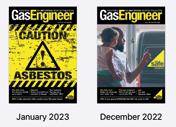
*Available to Gas Safe registered engineers only. You’ll need to log in with your Gas Safe registration number for verification the first time you use the app.

Find the latest technical articles, news and features, Technical Bulletins, Industry Standard Updates and Safety Alerts.
Choose e-Journal replica to download and read 12 full magazine editions on your mobile device.
Of course, training doesn’t stop at just boilers. Accessories also need to be understood; everything from flues and pumps through to condensate traps and control systems. When considering the latter, technical aspects such as wiring and connectivity should not be overlooked and there should also be a focus on functionality. Smart devices, diagnostics and zoning should be demonstrated and explained.
Training should encompass the benefits of hydrogen-ready heating and hot water technologies. Learning about this now will help you to prepare for more sustainable heating systems as and when they are introduced. ■
A training day at Navien includes a detailed overview of either the gas or Blue Flame oil boilers, covering essential angles such as installation, servicing and commissioning, in addition to parameters, settings and fault analysis. There’s a focus on the new NCB ON gas boilers, with built-in DHW recirculation pump for fast hot water delivery, as well as the NaviCirc recirculation valve for simple set-up of a hot water return system.
Training on oil boilers covers adjusting the pump and measuring combustion at the commissioning stage, as well as heat exchanger cleaning and maintenance. All attendees go home with a free training giveaway pack.
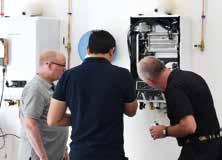
Spirotech has added to its SpiroExpand range of pressurisation solutions designed to improve the efficiency and lifespan of heating and cooling systems on light commercial and renewable installations.
Currently available in five sizes, from 4 litres up to 25 litres, the pressure expansion vessel with fixed gas filling features a bellows membrane, which prevents the system water from coming into contact with the sheet metal wall of the vessel. This helps to reduce corrosion inside the vessel and can maintain optimum pressure up to five times more efficiently than
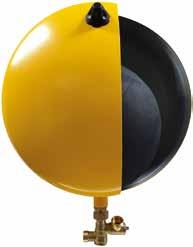
expansion vessels with a standard flat membrane.
The pressure relief valve is located on the front of the unit for easier servicing and maintenance and the vessel comes with a built-in bracket for ease of installation.
Area sales manager
Dave Goodyer says: “This newest addition to our SpiroExpand range is designed to really simplify installation and maintenance for the installer, while also providing long-lasting results for the end user, at a crucial time when improving efficiency is more important than ever before.”
www.spirotech.co.uk
TrustMark has created a free ‘one-stop shop’ home improvement app, aimed at helping people to better understand the process, requirements and considerations around having home improvement work carried out in their property.

The Home Improvement App will help to broaden their knowledge and confidence in dealing with and asking questions of tradespeople, particularly when it may be their first experience of doing so.
Content includes information that a homeowner needs to bear in mind when planning a project – from finding skilled and
Viessmann has added a 35kW model to its Vitodens 050-W combi range. The new addition provides domestic hot water output from 2.9kW to 35kW and heating output from 3.2kW to 32kW, with a modulation range of 1:10 for increased seasonal efficiency.

The Vitodens’ MatriX-Plus burner with Lambda Pro combustion-control system provides high efficiency and low emissions, giving an ErP efficiency rating of 92 per cent (Class A).
Wi-Fi inside enables out-ofthe-box commissioning via Viessmann’s ViGuide Mobile app, while the user has full control of their heating using the ViCare app.
“The new higher output and increased flow rate offer a very attractive boiler at a mass-market price, for installers and customers looking for Viessmann quality and reliability, and offer increased hot water comfort for one-bathroom properties,” says marketing director Darren McMahon. “It’s ideal for both the specification sector and retrofit installations.”
Weather compensation can be incorporated with the addition of
competent tradespeople, agreeing a contract and what to expect, project timelines, example costs, planning permissions, building regulations and insurance requirements, through to health and safety considerations.
TrustMark CEO Simon Ayers says: “We wanted to provide a tool that homeowners could use wherever they were, to help them ask appropriate questions and provide relevant information about the work they want done and how to go about things.”
The app is free to download: search for TrustMark on app stores.
an inexpensive outdoor sensor. The in-built WiFi connects the boiler to the ViCare app even when the boiler is installed with third-party controls. This will ensure the boiler receives software updates, similar to other connected devices, enabling fault diagnostics and aiding the ongoing service and maintenance regime.
The boiler is certified for a blend of 20 per cent hydrogen and up to 20m for horizontal and vertical flue systems.
www.viessmann.co.uk
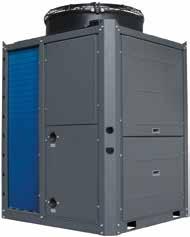
The AW Monobloc range of commercial heat pumps from Modutherm is designed to offer powerful heating, cooling and hot water outputs for a wide range of applications, including residential apartment buildings, schools, offices and hotels.
There are three models –30kW, 45kW and 90kW – which can be cascaded in up to 16 units from one controller, providing a maximum combined output of 1,440kW.
With an A++ energy efficiency rating and a CoP up to 5.06, outputs can be adjusted automatically according to heat demand for optimum system efficiency. Enhanced vapour injection (EVI) technology stabilises the output and minimises energy consumption.
Nano-coated condensers
enable faster water drainage from the condenser surface, reducing ice formation and defrost times. All models come with a five-year warranty on the compressor and a three-year warranty on parts.
www.modutherm.co.uk

The Tyneham is Hamworthy Heating’s first monobloc air source heat pump range, designed for commercial applications. It’s one of the smallest commercial heat pumps and has a co-efficient of performance (CoP) rating of up to 4.85, to provide efficient,

low-carbon heating.
The range has seven models with six nominal outputs of 14kW to 70kW, which can be cascaded to achieve higher outputs in larger installations. Incorporating inverter controller compressor to accurately match the heat demand, RG32 refrigerant also maximises low global warming potential.
All components are housed in the compact and lightweight main unit for ease of commission and installation. Additional options include flexible hoses, anti-vibration feet, externally mounted control units, and single-phase units. Heat pumps can be combined with Hamworthy modular boilers to create a hybrid heating system. www.hamworthy-heating.com
ESi’s newest heating control is the RTP4 Touch programmable room thermostat, suitable for combi, system and heat-only boilers. When installed with the ESi Wi-Fi hub, heating and hot water can be controlled via Alexa or the ESi Centro App. Load compensation functionality, available via OpenTherm, modulates the flow temperature according to the desired room temperature, saving up to 15 per cent on gas usage.
The RTP4 Touch has a large backlit LCD and touch screen for ease of use and programming.

The control slots in neatly between ESi’s RTP4RF units and its 6 Series WIFI programmable room thermostats. It offers optimum start/ stop and delayed-start functions for additional cost savings; 7-day, 5/2-day or 24-hour options to suit the user’s lifestyle; automatic summer/winter change settings and has home, manual, away, sleep and holiday modes. It also comes with a landlord’s service interval reminder. www.esicontrols.co.uk





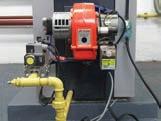







The Gas and Plumbing industry is undergoing one of the most developmental periods in recent years. Emerging technologies and changing consumer needs have opened up doors for brand new industry approaches and there’s never been a more exciting time to get involved.










Eastleigh College are proud to champion one of these emerging technologies in Air Source Heat Pumps. These devices utilise renewable energy to create more sustainable heating and plans are in place to introduce these in both domestic and industrial environments. However, with only 20% of heating engineers being qualified to install heat pumps, the demand for training in this sector is high.
Our course will equip you with the knowledge and skills to help roll out this important new technology across the country and create a more sustainable future.


















Book now for our Government funded course. Find out more by emailing BeBetter@eastleigh.ac.uk or call our friendly team on 023 8091 1000


















For a safer way to guide wall-mounted boilers into place, Registered Gas Engineer and Clevatech have teamed up to offer one lucky reader the chance to win the new Boiler Lifter.
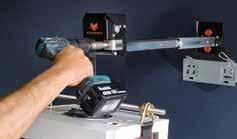
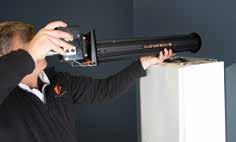
Muscle strains and back injuries caused by manual handling are common for gas engineers and can lead to time away from work as well as loss of earnings.
Clevatech’s new one-of-a-kind boiler lifting tool is specially designed to help make installing gas boilers easier and safer. The Boiler Lifter is ideal for awkward installations in confined spaces and can be operated by one person.
Clever technology uses a standard core-drilled flue hole through a cavity wall to lock the tool in place securely. A sliding arm extends to clear expensive work tops and other obstacles, and the lifter makes quick and easy work of handling heavy boilers, powered by simply squeezing the trigger of a brushless drill.
Clevatech director Brian Channon says: “It’s like having an extra pair of hands to take the boiler’s weight while the installer guides it safely and precisely on to the wall bracket.”

The tool is engineered to be robust and durable for any environment. Its unique design and high-grade materials means it can lift heavy and cumbersome boilers safely and with ease.
The Clevatech Boiler Lifter can also be used effectively to safely remove old, decommissioned and broken wall-mounted boilers.

• Find out more at: www.clevatech.co.uk
By entering this prize draw, you agree to these terms and conditions:
• Registered Gas Engineer and Clevatech do not accept responsibility for lost, delayed, corrupted or invalid entries.
• The winner will be chosen at random from all correct answers submitted in accordance with these terms and conditions.
• The winner will be notified by email. The judges’ decision is final and no correspondence will be entered into.
• The prize cannot be substituted or upgraded.
• The prize is non-transferable and there is no cash alternative.
• Registered Gas Engineer and Clevatech may disqualify you from winning if they have reasonable grounds to suspect that you are in breach of these terms and conditions or your participation is fraudulent or otherwise unlawful.
• This draw is not open to employees of Clevatech, Gas Safe Register or Registered Gas Engineer or their direct family members or agents.
• Registered Gas Engineer and Clevatech do not accept any responsibility for any network connection,
For your chance to win Clevatech’s Boiler Lifter, just answer the following question correctly: How many people are needed to operate the boiler lifter?
a) 1
b) 2
c) 3
Send your answer plus your name, address and registration number to competition@ registeredgasengineer.co.uk
One winner will be chosen at random from all correct entries received by Tuesday 28 February 2023.
technical failure or other problem in any telephone line, network, system, provider or otherwise which results in any entry not being properly recorded or received.
• One entry per person.
• Your entry details will be provided to Clevatech, which may use them for marketing purposes. By entering this competition, you agree that you may receive communications from Clevatech. If you do not wish to be contacted, please add NO COMMUNICATIONS in your email entry.
